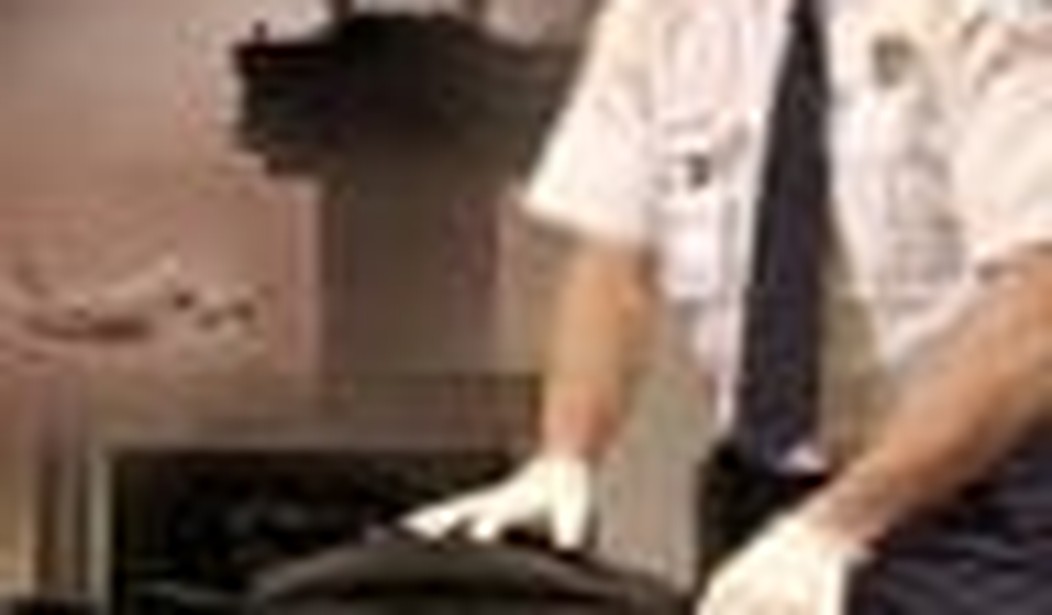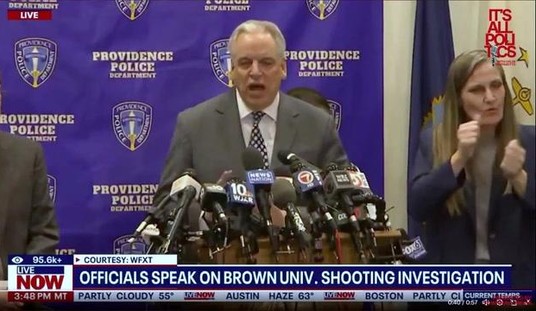At a recent news conference in Jerusalem, Department of Homeland Security (DHS) chief Michael Chertoff announced that the U.S. had signed a landmark agreement with Israel to share information about airport security.
Israel is considered to have the most effective airport security measures anywhere in the world. So convinced are they of the benevolence of people they allow to board their planes, first class passengers are given steak knives with their meals.
No doubt, Israel’s airport and airplanes are among the highest-value terror targets in the world — yet terrorists haven’t managed to penetrate Israeli aviation security in 36 years. Chertoff’s announcement coincided with the anniversary of the event that explains why: the Lod Airport massacre of 1972. In that attack, 16 Americans were killed.
By all accounts, airport security guards at the airport in Tel Aviv were on the highest possible security alert on May 29 of that year. Just three weeks earlier, four Palestinians had hijacked a Belgian airliner and forced it to land there. The terrorists demanded the release of 312 Palestinian prisoners — or they’d kill the passengers and blow up the plane.
Instead, a team of 16 Israeli commandos boarded the aircraft parked on the tarmac at Lod. Disguised as airplane technicians, they killed two terrorists and captured the remaining two. Three passengers were injured and one bled to death. (The elite hostage rescue unit was led by future Israeli Prime Minister Ehud Barak; another one of the commandos was future Israeli Prime Minister Benjamin Netanyahu, who was shot in the incident.)
The hijacking had been organized by a man named Abu Hassan, leader of Black September, which back then was the deadliest terrorist organization in the world. To avenge the killing of his hijackers, Abu Hassan planned a successor attack. Three weeks later, they struck the airport again. Only this time, Hassan outfoxed Israeli security. Instead of using ranking members of Black September, Abu Hassan contracted out “ideological mercenaries” in the form of three young Japanese kids — two of whom were students at Kyoto University. Hassan knew that Japanese terrorists would be far better positioned to penetrate Israeli security than Arab-looking ones.
Takeshi Okudaira, Yasuyuki Yasuda, and Kozo Okamoto were suicidal members of the Japanese Red Army, willing to kill for the Palestinian cause. After being trained by Abu Hassan’s group in Lebanon, the three men were dispatched to Lod.
Okudaira, Yasuda, and Okamoto ostensibly drew little attention when they arrived at the Lod Airport on an Air France flight from Paris. Dressed in business suits, the college-aged kids carried musical instrument cases as a disguise. Inside the cases were semi-automatic machine guns, which once retrieved from the baggage claim were used in the attack.
The Japanese terrorists fired into the crowd, cutting down a group of Puerto Rican tourists visiting the Holy Land and killing sixteen of them. They threw grenades into packs of terrified people seeking shelter. One of the gunmen ran out onto the tarmac and began shooting passengers coming off a flight.
When it was over, a total of 26 people were dead. Eighty were injured. Israel changed the airport’s name to the Ben-Gurion International Airport and began a security system based on behavior profiling.
The system works. Fourteen years later, the case of Anne Marie Murphy — prevented by Israeli security agents from boarding an El Al flight with seven pounds of explosives — makes the point. The pregnant, fair-skinned Murphy, who is Irish, was profiled and deemed suspicious. During secondary screening, agents discovered Semtex concealed in the lining of her bag. Without knowing it, the former chambermaid had been given a bomb by her terrorist boyfriend, a Jordanian named Nizar Hindawi, who was not on the flight. Hindawi was the father of Murphy’s unborn child.
Security experts familiar with Israel’s behavior profiling system have long since criticized U.S. airport security for its approach. The lion’s share of TSA’s $4.9 billion annual budget is spent looking for bombs, not bombers. This is why TSA agents insist on confiscating your five-ounce bottle of shampoo at the security checkpoint and why Israeli agents will give you a steak knife once you’re in flight.
Chertoff made the right move.









Join the conversation as a VIP Member